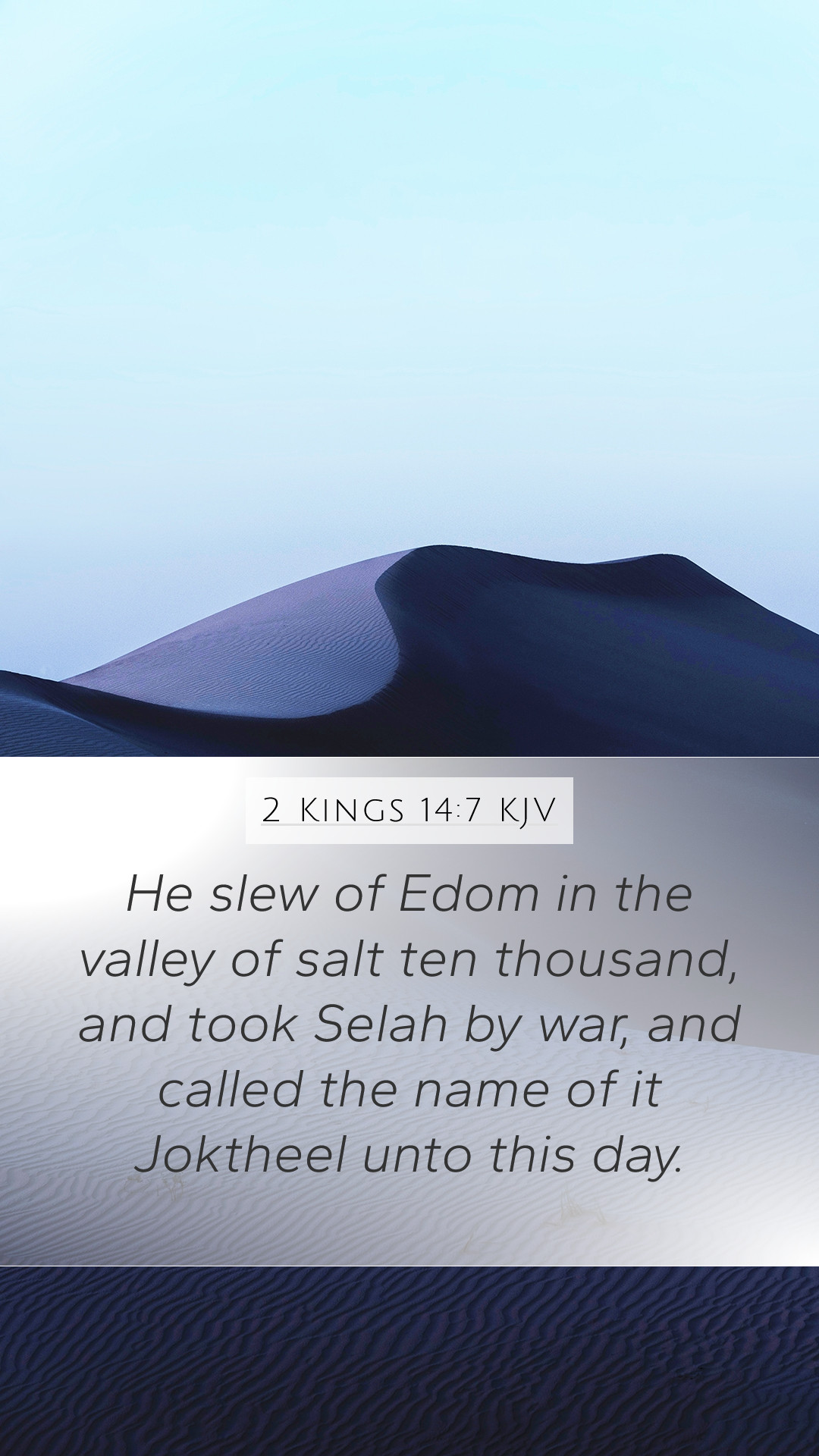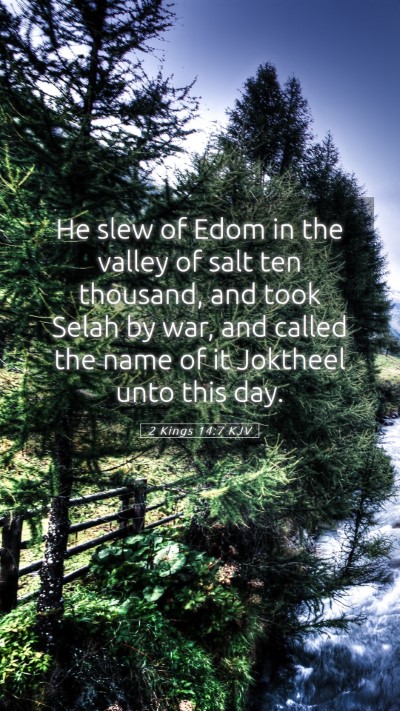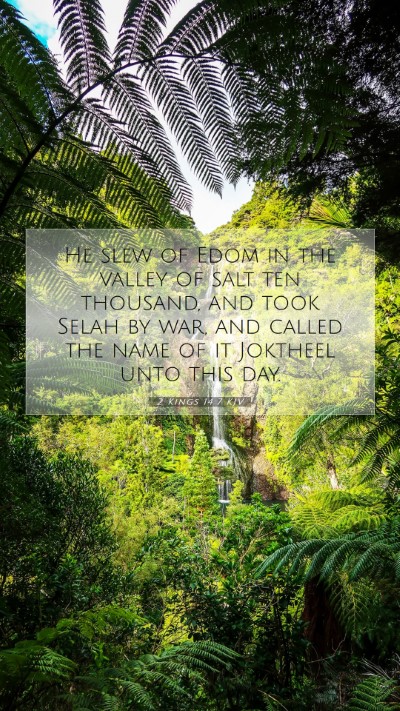Understanding 2 Kings 14:7
In this exposition, we will explore the meaning, interpretation, and insights regarding 2 Kings 14:7 by collating thoughts from renowned public domain commentaries such as those of Matthew Henry, Albert Barnes, and Adam Clarke. This analysis is intended for those seeking bible verse meanings, bible verse interpretations, and bible study insights.
Text of 2 Kings 14:7
"He killed of Edom in the valley of salt ten thousand, and took Selah by war, and called the name of it Joktheel unto this day."
Historical Context
This verse provides a glimpse into the reign of Amaziah, King of Judah. The historical context is crucial for understanding the significance of the events described. Amaziah sought to strengthen Judah by engaging in military campaigns against Edom, a neighboring nation historically in conflict with Israel.
Exegesis and Commentary
-
Matthew Henry's Commentary: Henry emphasizes the divine providence in Amaziah’s military success, highlighting that such victories come with God’s support. The context suggests that Amaziah’s efforts to consolidate his kingdom were initiated by both military action and divine favor.
-
Albert Barnes' Notes: Barnes points to the historical significance of Selah (Petra), noting it as a strategic and fortified city. The conquest signifies not just a military victory but an expansion of territory, which would bolster Judah's power and influence over the region. Barnes also discusses the naming of the city Joktheel, suggesting it reflects Amaziah’s triumph and perhaps a dedication to God for his assistance.
-
Adam Clarke's Commentary: Clarke provides depth on the geographical implications, indicating that Selah was situated in a critical location. He interprets the term valley of salt as indicative of the surrounding terrain and alludes to the bitter history between Edom and Judah. Clarke also reflects on the spiritual lesson: victories require reliance on God, rather than mere military might.
Significance of the Verse
This verse recounts a significant military achievement that marks Amaziah’s reign. It holds spiritual and practical implications for the reader:
- Divine Favor: Success in endeavors is often tied to adherence to God’s commandments.
- Historical Legacy: The renaming of Selah to Joktheel reflects how history can be shaped by key events, emphasizing the importance of remembering God's acts in our lives.
- Faith in Action: The active pursuit of God’s direction and military action symbolizes the balance between faith and works in achieving one’s purposes.
Application of the Verse
For modern readers, 2 Kings 14:7 invites reflection on multiple levels:
- Personal Battles: Just as Amaziah faced external enemies, individuals today will encounter personal struggles. The verse encourages seeking God’s guidance in overcoming challenges.
- Community Strength: Like Amaziah's consolidation of territory for Judah, communities today can unite to strengthen collective endeavors through faith-based initiatives.
- Legacy: The renaming of Selah reminds believers to recognize and honor the transformative moments in their lives that have been orchestrated by God.
Cross References
- 2 Chronicles 25:5-10 - Details on Amaziah's army and actions.
- Isaiah 63:1 - References Edom in the context of judgment.
- Obadiah 1:10-14 - Prophecy against Edom and discussion of its fate.
Conclusion
In summary, 2 Kings 14:7 offers a rich narrative that intertwines military success with divine providence. Its lessons resonate in both historical and contemporary contexts, inviting believers to reflect on bible verse commentary and apply these insights in their lives. By delving into such texts, one can gain profound understanding of Scripture and its relevance.
If you are looking to deepen your understanding of such passages, consider joining bible study groups or using various bible study tools available online for enhanced learning.


